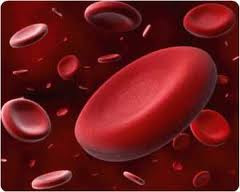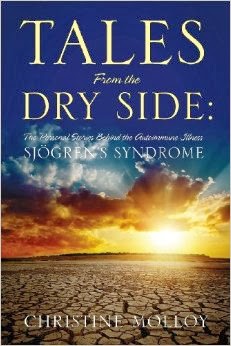In 2004 I experienced sudden pain in my lower left leg. It was an unusual pain. I didn’t remember banging it against anything and I certainly hadn’t been active doing any type of exercise or sports recently. For a variety of reasons, depression had been my constant companion and I had been spending a lot of time laying around. That would soon come back to haunt me.
After a few days, the leg pain got worse and I went to see my primary care doctor. He wasn’t much of an alarmist but he thought it was worth having an ultrasound done on the “off chance” that I had a blood clot in my leg. To be honest, I thought it was overkill but then my thoughts turned to panic when the radiology department told me I could not leave the hospital yet and then called my doctor. My ultrasound showed that I did indeed have a blood clot and would have to go on injections of a blood thinning medication called Lovenox, followed by the oral blood thinner Coumadin, for a period of three months. Since I was a nurse, they sent me home from the emergency room with a prescription as I could do the injections myself which by the way, is easier said than done.
My primary care doctor was suspicious about my blood clot because even though I took the birth control pill, I was a non-smoker. He ran a series of blood tests to check for genetic blood clotting disorders and sure enough, one of them came back positive. I have a genetic clotting disorder called Factor V Leiden and I am heterozygous which means that I only have one copy of the gene. My mother subsequently got tested for Factor V Leiden and was found to be positive as well.
Because I am heterozygous (which is less serious) and was on birth control at the time which probably caused the clot, I remained on Coumadin for only three months. I came off the pill and was banned from hormonal birth control for life. I thought that was the end of it. For those of you who are unfamiliar with Coumadin, it is a difficult drug to be on. It requires frequent lab draws while they stabilize your dose and then usually you have monthly blood draws after that. Coumadin interacts with a lot of other prescription and non-prescription medications including anti-inflammatory medications such as Motrin and Advil. Also because there is such a low threshold for the therapeutic blood level, called the INR, you need to be vigilant about signs of having too high of a level, which can lead to bleeding. There are dietary issues that play a big role in taking Coumadin as levels of Vitamin K, which is found in foods such as green leafy vegetables, can dramatically throw levels off.
Fast forward to February 2012. I am receiving high doses of IV steroids for what was thought to possibly be neurological complications from Sjogren’s syndrome but ended up being a mild case of another autoimmune illness called Guillain-Barre. For weeks, I had been experiencing severe leg pain and weakness which for a lot of the time, kept me in bed or on the couch. It never occurred to me or to my doctors that maybe I should go on blood thinners preventatively due to my Factor V history and current immobility.
Twenty-four hours after the third IV dose, I am sent to the emergency room with heart palpitations, thought to be related to the steroids, so that an EKG can be done. Labs are drawn and one of the labs, the d-dimer test, comes back suspicious and because of my Factor V Leiden history, a CT scan of my lungs is performed. Next thing I know I am admitted and told that two small blood clots have been found in my lungs and I am put back on blood thinner injections once again. Another trip to the hematologist and I am now put on Coumadin for at least a year and most likely for the rest of my life as I have now had two clotting events. I am also tested for other autoimmune clotting disorders which all come back negative. The hematologist admits that he is taking a very conservative approach.
Months go by and I learn more about these two blood clots that were found in my lungs from several different doctors. I find out that they were very small and located in peripheral veins and likely were an incidental finding; meaning that if I had not come into the ER that day, these clots never would have been detected, caused me any problems and would have resolved on their own. However it did not seem that NOT being on Coumadin was even an option according to my doctors. At least that was the impression that I got.
It took us approximately five months to get my INR to a therapeutic level and I was becoming frustrated with being on Coumadin because things were much different with my overall health than my first time around with the medication in 2004. I now had a very difficult to treat autoimmune disorder. I had to stop taking Motrin with helped significantly with my joint and other autoimmune related pain. I had to significantly decrease my intake of Omega 3 fish oils which I not only took for inflammation but was my treatment of choice to help manage mood swings related to taking prednisone. I constantly had to be cautious about my diet because I had started eating healthier and green leafy vegetables were a part of that diet. I had to be strict about making sure I ate the same amount of greens on a consistent basis. I was also restricted on trying alternative medication and herbs to treat my autoimmune disorder because of their potential interaction with Coumadin. To me, it seemed ridiculous that I was taking potent medications like prednisone and narcotics without having the opportunity to try an alternative treatment plan because of Coumadin.
Now I know some of you may be sitting back and thinking that well, you have to do what you have to do, right? Better than the risk dying, right? Because that’s what can happen if one of these blood clots gets out of control. But that’s the thing. These two events were not random events. They could, in my mind, most likely have been prevented. So I started doing a lot of research because at this point, it was starting to become a quality of life issue. It’s easy for a doctor to say: stay on Coumadin for the rest of your life. But at forty-one years old, the rest of your life, is a long life. It is a risk. What I found in my research was that having two blood clotting events is not always a definite for going on lifelong Coumadin therapy. There are people out there who chose not to. Instead, there is the option to stay off Coumadin and then if they find themselves in a high risk situation such as a long plane ride, a hospitalization, or any other situation where they are at high risk to develop a clot, they go on Lovenox injections preventatively.
I am willing to do that.
I decided to call my hematologist and discuss this with him since my next appointment wasn’t until April and coincidentally I was admitted to the hospital the same day he called me back and could not speak with him. He told my fiance to have me call him back that Friday. I was having gastrointestinal issue related to Sjogren’s and because I had not been eating, my INR was too high. My Coumadin was held for the next four days and at one point, the doctors even considered holding off on doing an endoscopy, a procedure which I very much needed, because of the elevated blood level. I was pretty much done with the whole Coumadin saga at this point.
The day before I was discharged from the hospital, which happened to be Friday, my blood levels stabilized and the hospital doctor wanted to start me back on Coumadin. I also remembered that this was the day that the hematologist was going to be available to talk to me. I called him. I have to admit, I was pretty nervous. I was certain that I was going to get lectured for even considering wanting to come off this medication and as strong as I was in my convictions about this being the right decision for me at this time, I wanted to have a rational and well thought out conversation with the hematologist about the issue.
And I did.
I told him my perspective and he told me his. It ended up that they were really not that different at all. Typically when someone with a genetic clotting disorder has two separate clotting events, the recommendation is that they go on Coumadin for life. But that is a recommendation. It doesn’t mean that all people do it. As far as I know, it also doesn’t account for anyone with heterozygous Factor V Leiden who had one incident on birth control, one incident with Guillain-Barre, and who also has a difficult to manage autoimmune disorder that could really benefit from other treatment that interacts with Coumadin. Because let’s be honest: that’s all just unheard of. Nobody gets all of those disorders in one lifetime. Only I do.
He did acknowledge that he was coming from a very conservative treatment standpoint and as a patient, I have to respect that. As a doctor, he seemed to respect where I was coming from. I even said to him “Do you think I am insane for wanting to do this?” to which his reply was ” Absolutely not.” It was not a conversation in which the doctor told the patient what to do. I made it clear that my wanting to come off Coumadin was not an impulsive decision but rather a very well thought out one. At this point I had been taking Coumadin for nine months since my last clotting event.
The decision was made that I would stay off the Coumadin and follow up with him at my April appointment. I also agreed that I would be proactive about blood clot prevention. This means that if I am in a high risk situation, I will go on short term Lovenox injections. I will take care to wear special antiembolic stockings if I am not moving around as much as usual and I will not stay sitting or in bed for more than an hour or two without getting up and walking around; except for typical sleeping time or naps. It is going to require effort and diligence because nobody else is going to do it for me, as evidenced by what happened last February. I cannot rely on a pill to keep my blood from clotting anymore.
Now this is all well and good. Fact is, I may get another blood clot anyways. I am well aware of that and to be honest, it scares me a bit right now. But it scares me more to be on Coumadin and recently be told several times that my levels were high, unpredictable and then have to worry about bleeding. It’s a risk no matter which way I go and right now, I feel that the risk I am taking by staying off the Coumadin, coupled with the significant increase in the quality of life it will give me, is worth it.
This whole experience has opened my eyes to a few things. As a patient, I have choices. Medicine is not black or white. There is a lot of grey. A doctor can make recommendations, even strong ones, but at the end of the day, I am the one who has to live with the consequences of the health care decisions that I make. It doesn’t mean I will always make the right decisions but who is to say that our doctors do either? They are human too. They have the education and expertise to give us the information, but we are the ones that then have to ultimately live with the consequences of the medical treatment that we decide on. Our bodies. Our lives.
Photo: Courtesy of Google Images






